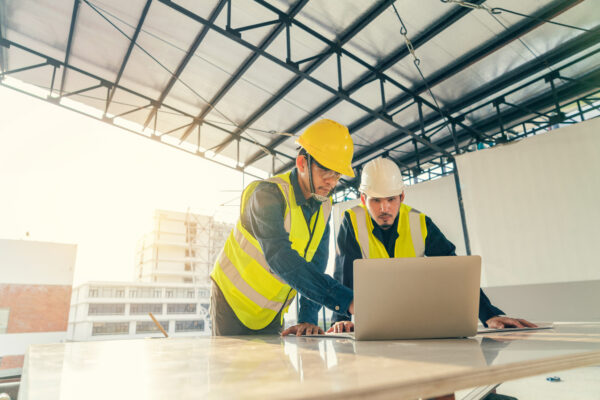 The construction industry, known for its complex projects and intricate processes, is experiencing a transformation with Artificial Intelligence (AI). It is revolutionizing the way construction projects are planned, executed, and managed. However, there are also challenges that should be considered when implementing this innovation.
The construction industry, known for its complex projects and intricate processes, is experiencing a transformation with Artificial Intelligence (AI). It is revolutionizing the way construction projects are planned, executed, and managed. However, there are also challenges that should be considered when implementing this innovation.
Here are 7 common areas AI is being used in construction:
- Predictive Analytics: AI algorithms can analyze large amounts of data to predict project outcomes, identify potential risks, and optimize construction schedules. This helps in better project planning and resource allocation.
- Autonomous Equipment: AI-powered autonomous vehicles and drones can perform tasks such as site surveying, material delivery, and inspection. This reduces the need for manual labor, improves safety, and increases productivity. AI can be a valuable tool to enhance safety on construction sites that are structurally unsound or deemed unsafe for workers. Although, it should not be relied upon as a solution for inherently unsafe conditions.
- Quality Control: AI can analyze images and sensor data to detect defects, monitor construction progress, and ensure compliance with quality standards. This helps in identifying issues early on and reducing rework.
- Safety Monitoring: AI can analyze real-time data from sensors and cameras to detect potential safety hazards on construction sites. It can alert workers and supervisors about unsafe conditions, helping to prevent accidents.
- Virtual Reality (VR) and Augmented Reality (AR): AI-powered VR and AR technologies enable architects, engineers, and construction workers to visualize and simulate construction projects before they are built. This helps in identifying design flaws, improving collaboration, and reducing costly changes during construction.
- Natural Language Processing (NLP): NLP allows construction professionals to interact with AI systems using voice commands or text, making it easier to access information, generate reports, and manage project documentation.
- Energy Efficiency: AI algorithms can optimize energy usage in buildings by analyzing data from sensors and adjusting HVAC systems, lighting, and other energy-consuming devices. This helps in reducing energy costs and improving sustainability.
Before implementing AI at your construction company here are some areas for consideration.
Cost: Implementing AI technologies in the construction industry can be expensive.
Data quality and availability: AI systems heavily rely on high-quality and accurate data to make informed decisions. However, in the construction industry, data collection and management can be fragmented and inconsistent. Lack of standardized data formats and limited availability of historical data can hinder the effectiveness of AI systems.
Lack of expertise: AI technologies require skilled professionals who can develop, implement, and maintain them. The construction industry may face a shortage of AI experts who have domain knowledge and understand the specific challenges and requirements of the industry.
Ethical considerations: AI systems in construction may raise ethical concerns related to privacy, security, and bias. For example, AI-powered surveillance systems may infringe on workers’ privacy rights, and biased algorithms may perpetuate existing inequalities in hiring or resource allocation.
Integration challenges: Integrating AI systems with existing construction processes and workflows can be complex.
Reliability and trust: AI systems are not infallible and can make errors or produce unexpected results. In safety-critical applications, such as construction, the reliability and trustworthiness of AI systems become crucial.
Overall, AI is revolutionizing the construction industry by streamlining processes, improving safety, and enhancing decision-making. Contact an MMA risk management consultant for innovative ways to customize your insurance program in this transforming industry.



